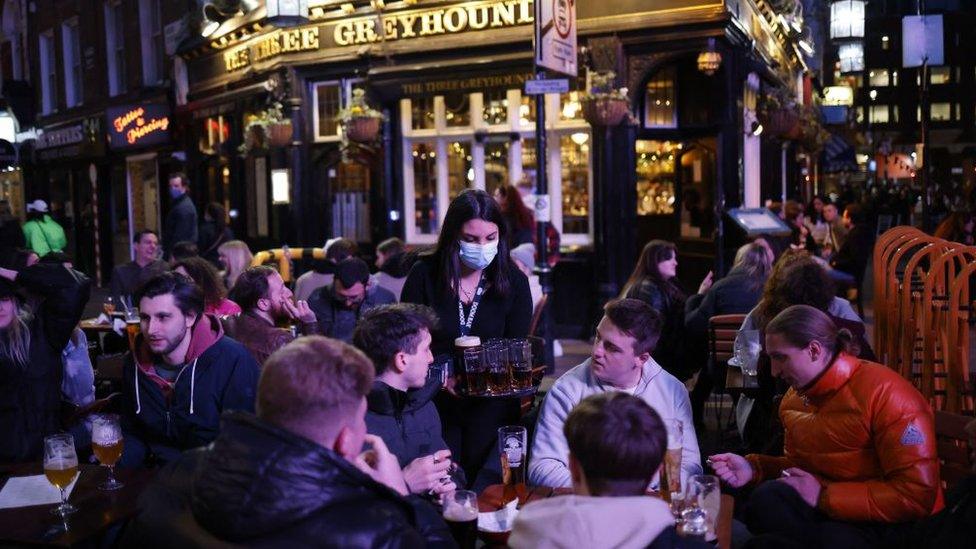Covid-19: G7 nations 'should finance global vaccine scheme' - Brown
- Published
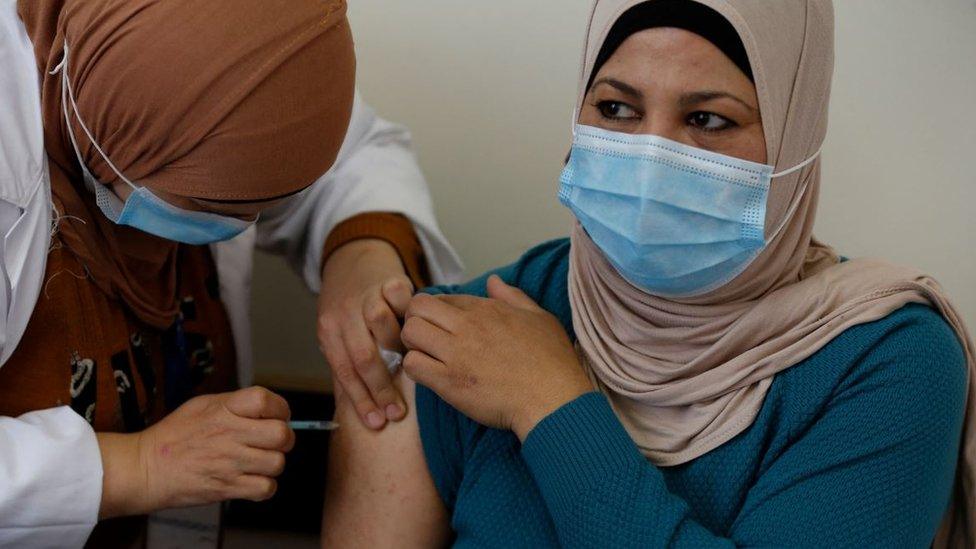
The G7 group of wealthy nations must lead a "Herculean mobilisation" to push for global mass vaccination against Covid, former PM Gordon Brown has said.
Writing in the Guardian, Mr Brown said £22bn was needed to ensure yearly vaccinations for lower income countries until Covid no longer claims lives.
The next G7 summit is due to take place in the UK in June.
The UK government said millions of doses had been sent to developing countries under the Covax scheme.
The Covax programme, run by the World Health Organization (WHO) and other international groups, aims to ensure vaccines are shared fairly among all nations, rich and poor.
The scheme is expected to provide enough jabs to cover more than a quarter of the developing world by the end of this year, but less than 1% of the population of sub-Saharan Africa has been immunised so far, Mr Brown said.
"Immunising the west but only a fraction of the developing world is already fuelling allegations of 'vaccine apartheid', and will leave Covid-19 spreading, mutating and threatening the lives and livelihoods of us all for years to come," he wrote.
The G7 is made up of the UK, Canada, France, Germany, Italy, Japan, the US and the European Union.
Mr Brown said there was an urgent need for greater action and warned against "unpredictable funding" and "erratic patterns of giving".
"We need to spend now to save lives, and we need to spend tomorrow to carry on vaccinating each year until the disease no longer claims lives," the former Labour leader said.
Deliveries of vaccine supplies under the Covax programme started in February, but there have been criticisms that it has not moved quickly enough.
So far, more than 38 million doses have been delivered to around 100 countries under the scheme.
The WHO has criticised the "shocking imbalance" in the distribution of coronavirus vaccines between wealthier and poorer nations.
Covax vaccine plan: What is it and how will it work?
Mr Brown said if G7 members commit to funding 60% of the vaccination fund, other wealthy countries will likely follow.
The money needed is a "fraction of the trillions" the pandemic is costing, Mr Brown added.
He said that if wealthy nations could mobilise the same moral force and urgency that inspired Live Aid in the 1980s and Make Poverty History in 2005, "we can end our reliance on the begging bowl" and establish global systems to deal with the pandemic.
However, international aid commitments have been cut in the last year as economies struggle to recover from the impact of the pandemic.
The UK government has come under fire for its decision to reduce foreign aid from 0.7% of national income to 0.5% - a move that would save about £4bn a year.
The threat of vaccine nationalism
A government spokesperson said: "We recognise this is a global crisis requiring global solutions, which is why the UK has been a leading donor to the Covax procurement pool for vaccines.
"Millions of doses have been sent to developing countries through the Covax scheme already. With our G7 partners, we will intensify our cooperation on the health response to Covid-19, including the acceleration of global vaccine development and deployment."

COVID VACCINE: When can you get it?
NEW VARIANTS: How worrying are they?
FACE MASKS: When do I need to wear one?
TESTING: How do I get a virus test?
GLOBAL TRACKER: Where are the virus hotspots?

Related topics
- Published24 February 2021
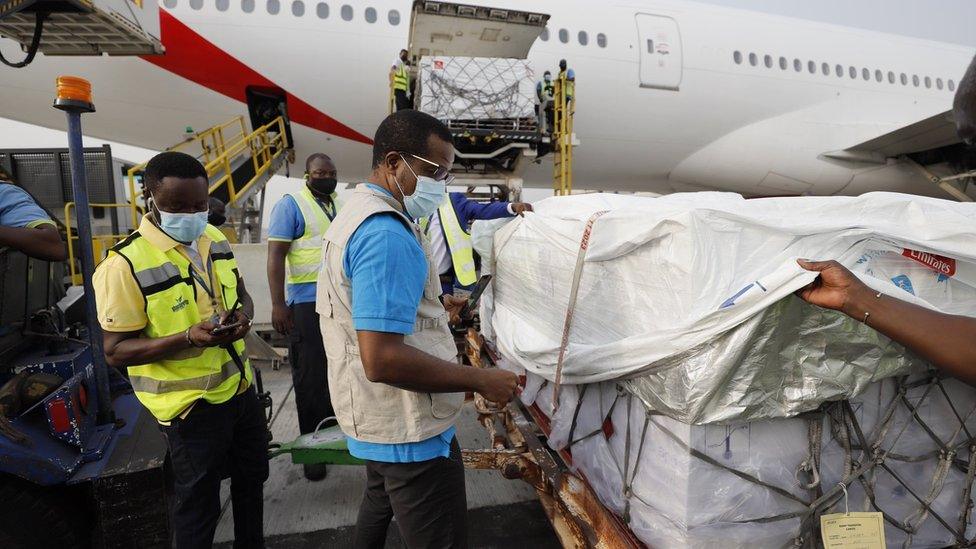
- Published10 April 2021
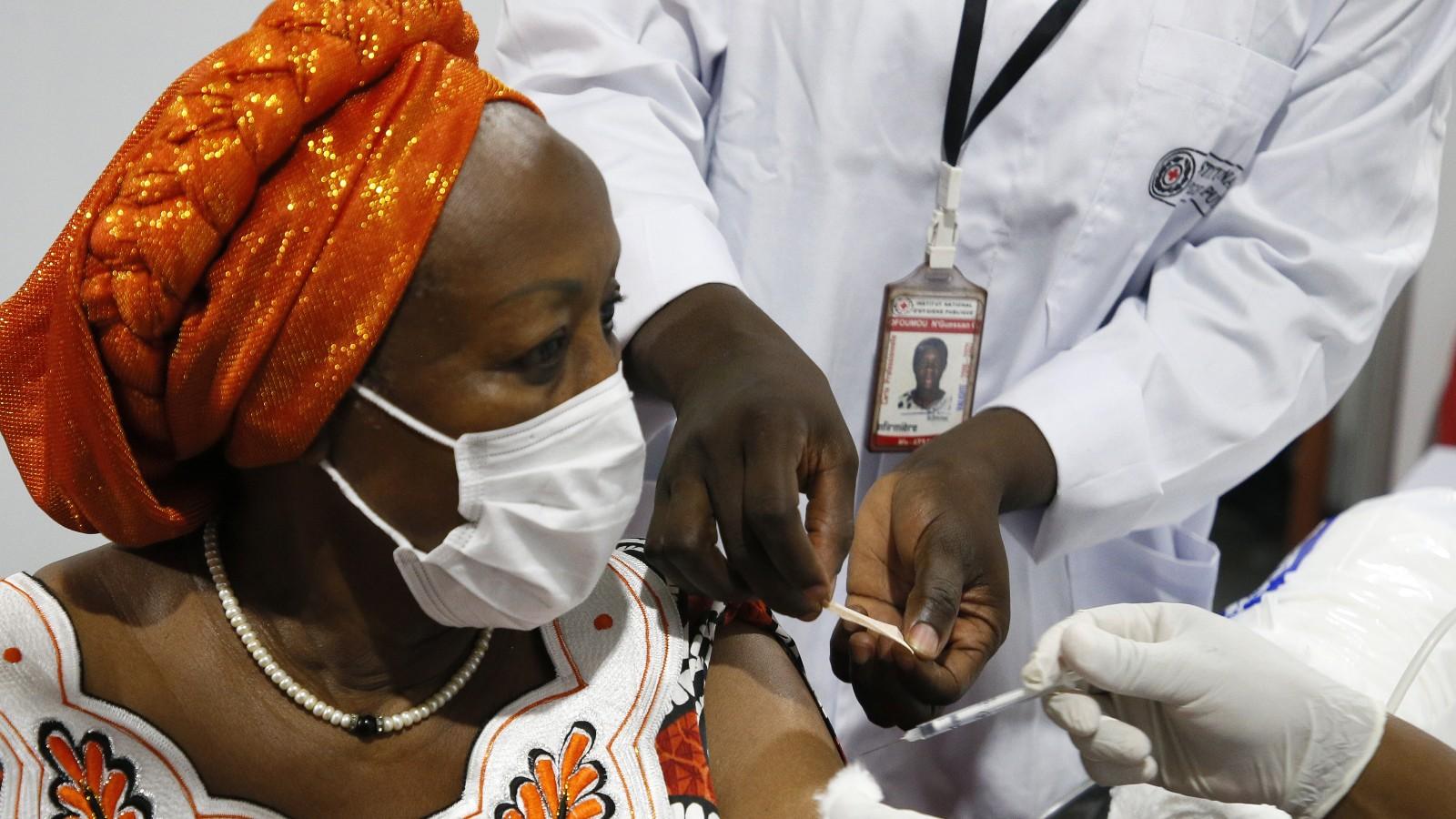
- Published19 December 2020
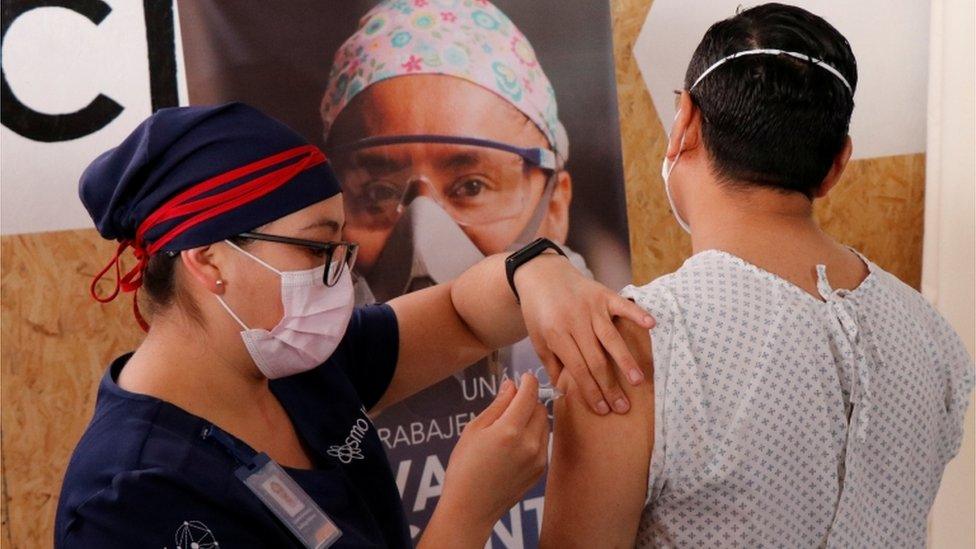
- Published21 March 2021
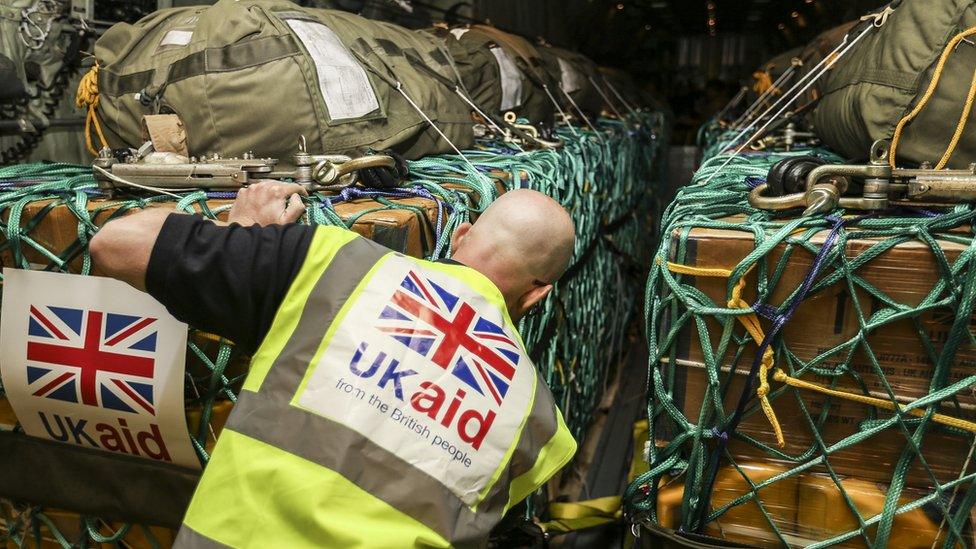
- Published12 April 2021
